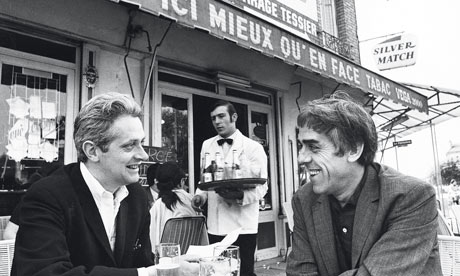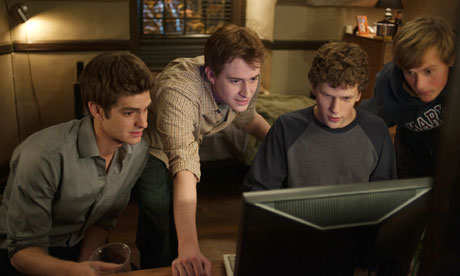Illegal downloading is threatening the film industry's ability to operate in Britain, a leading expert in digital copyright has warned.
As watching illicit copies of new films becomes increasingly commonplace, Liz Bales, director-general of the Industry Trust for Intellectual Property Awareness, is pinning her hopes on new technology which will make legal viewing easier and help to stem commercial losses estimated to be running at about £500m a year.
"It is a global issue," said Bales. "In some countries it has reached the point where it is not possible to offer competitive legal services. In Spain, for example, the market has been decimated by digital infringement."
Bales believes there is room for optimism in the prospect of "cloud-based"
internet services – virtual storage technology that will allow individual film fans to set up a "digital rights locker" through which they can watch legally selected films on a domestic device of their choice.
Research has shown that many copyright criminals go to illegal sites simply because they are easy to use, allowing films to be downloaded in high-quality formats and watched in widescreen on domestic television sets.
News last week that Warner Bros and Facebook are to join forces to distribute films directly over the internet – just as websites such as LoveFilm, Netflix and Apple TV already do – is likely to add to confusion in the marketplace about the legitimacy of different film sites. Many older viewers are unclear about the legality of sites such as Blinkbox, SeeSaw and IceFilms. As a result, broadcasters, film studios and distributors are increasingly worried that their audience of users who are prepared to pay to download their films legally will continue to shrink, destroying the domestic market.
For most film fans, the choice between waiting months to pay or becoming a copyright pirate is not too appealing, so the entertainment business is trying to help. Bales's organisation, which was set up in 2004 to represent the film and television sector, launched a £5m campaign last month to help make their point. The campaign, called Moments Worth Paying For, is fronted by the comedian and writer Reece Shearsmith, of
The League of Gentlemen, and was prompted by research that found that one in three users regularly visit illegal sites first. At the centre of the strategy is "
findanyfilm.com", a site set up last year by the UK Film Council and funded by the National Lottery.
Supported by advertising revenue, it offers a free service that tells users where to find the film they want on TV, on DVD, on a download site, on Blu-ray and even in the cinema. It will be a hard battle to win, however, especially with users such as 25-year-old law student Steve, who has illegally downloaded films for a decade. "It has got much easier now," he admitted.
"You can download in less then 10 minutes now – in less than five minutes sometimes. Ninety per cent of my collection comes from my friends. You could call me a cheapskate, but I still go to the cinemas and I still buy DVDs."
When Steve wants to see a blockbuster – such as
Inception,
Toy Story 3 or
Avatar – he waits for the British cinema release, but he has recently downloaded
The Social Network and
The King's Speech.
"
The King's Speech was poor quality and quite pixilated and a banner kept coming up saying the film was intended for review purposes only. Most of the stuff is good quality now and if you wait till it has actually come out on DVD, then you know the copy you download will be good quality."
Last month the culture secretary, Jeremy Hunt, asked industry regulator Ofcom to develop techniques for blocking websites that infringe copyright law. The minister said he had "no problem" with blocking access to websites, despite online censorship concerns from critics, but he added: "Before we consider introducing site-blocking, we need to know whether these measures are possible."
Ofcom is expected to report back in the spring.








